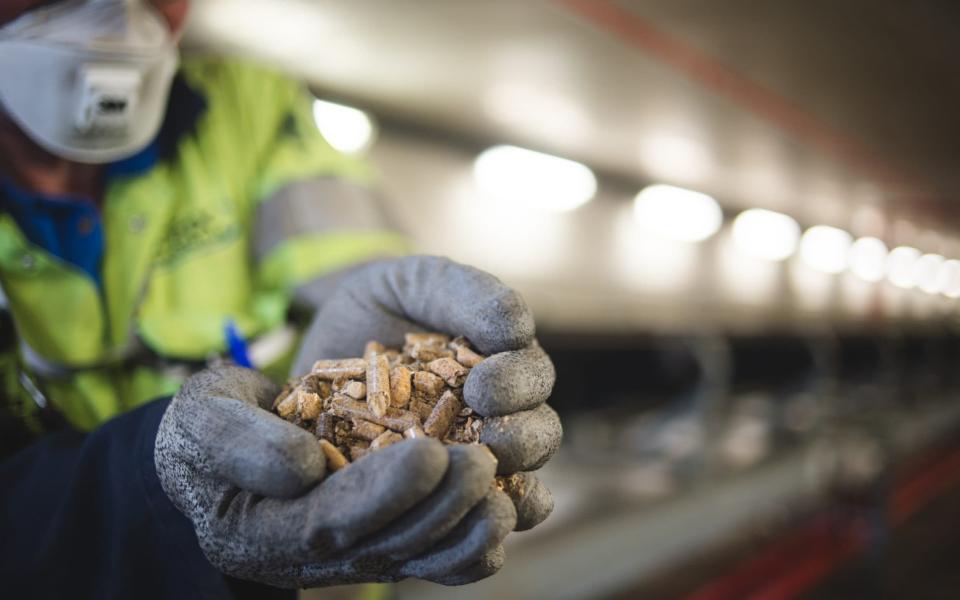Green activists target Drax investors

Drax shareholders are coming under pressure from environmental activists to oppose the biomass power plant owner's purchase of a pellet producer.
Last month Drax announced a £226m deal to buy Pinnacle Renewable Energy, which supplies biomass pellets from Canada and the US to Drax's turbines in North Yorkshire, among other customers.
Shareholders are due to vote on the deal on March 31, but a group of 22 organisations, including ShareAction and Friends of the Earth US, have written to them warning it creates "financial and reputational risks".
Drax has spent years switching four of its six turbines to run on biomass instead of coal, under climate accounting rules that deem burning biomass to be carbon neutral on the basis that trees sequester carbon during their lifetime.
The company produces about 7pc of Britain's electricity.
The environmentalists argue that political support internationally for biomass is uncertain, threatening subsidies. They also point to scientists who dispute the benefits of much current biomass burning and are pushing for policy changes.
Last August, the European Science Advisories Council, a collection of the national science academies of EU member states, warned that "much of the biomass employed in Europe is anything but neutral" and called for carbon emissions from biomass power stations to be declared under the EU's emissions trading system. The UK has left that system following Brexit and is setting up its own.
Subsidies for biomass electricity generation are set to run out in 2027. Drax hopes to bolster the long-term future of its plants by installing technology to remove the carbon dioxide produced when biomass is burned and stashing it underground.
It said this would result in "negative emissions" given that emissions from its plants are already counted as zero, helping offset emissions from other sectors as the UK tries to hit its legally binding target of cutting carbon emissions to net zero.
Drax said: “Climate change experts and scientists at the UN’s IPCC and the UK’s Climate Change Committee have stated sustainable biomass is critical to reach global climate targets – both in generating renewable electricity and in delivering negative emissions with bioenergy with carbon capture and storage (BECCS).
“BECCS is the most cost-effective negative emissions technology available now. It has been proven to work at Drax - the first unit could be operational as soon as 2027, permanently removing millions of tonnes of carbon dioxide from the atmosphere every year."
Shares rose 0.8pc to 414.2p and have risen steadily over the past 12 months from 126p at this point last year.

 Yahoo Finance
Yahoo Finance 